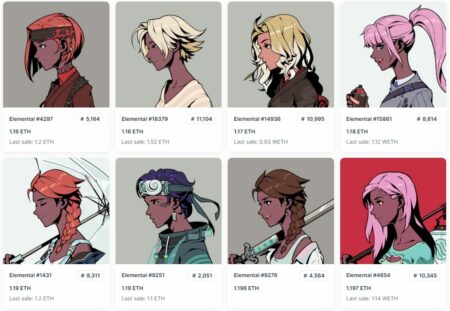In Palau, an intriguing experiment in digital citizenship and residency is gaining momentum. The RNS.ID platform offers a unique opportunity for individuals worldwide to obtain digital residency assets by paying a fee of just $248.
To clarify, this enables them to extend their visas and enjoy an extended beach life experience while concealing their true identities for accessing banned cryptocurrency exchanges. Let’s take a closer look.
TL;DR:
- Palau’s digital residency program enables visa extension and access to banned crypto exchanges.
- RNS.ID offers digital residency assets for a fee, ensuring identity concealment.
- Despite concerns, RNS.ID attracts users and generates revenue in Palau’s digital citizenship experiment.

How RNS.ID Helps Palau’s Digital Residency Regulations
Launched in 2022, RNS.ID’s Palau digital residency cards are available for durations of one, five, or ten years. These cards come with prices ranging from $248 to $2,039. It is important to note that these cards do not grant passport citizenship, but they do provide an extension of tourist visas by 180 days.
The virtual assets offered by RNS.ID serve as a means of identity verification for various businesses, including hospitality, retail (such as Costco), telecoms (like T-Mobile), online banking, and, notably, cryptocurrency.
One of the significant advantages of the Palau identification initiative is its potential to serve as a backdoor for citizens from countries with stricter regulations, such as the US, China, and Canada, to access cryptocurrency exchanges. By obtaining a Palau ID, individuals can bypass existing barriers.
The process of acquiring digital assets requires buyers to undergo a comprehensive procedure, which typically takes up to 10 days. This involves providing contact information, undergoing anti-money laundering checks, and submitting identification documents for verification before approval.
Crypto Community Reacts to the New Use-case
The crypto community has exhibited diverse reactions to Palau’s digital residency program. Changpeng Zhao, the founder of Binance, was among the first to participate in the program. This resulted in approximately 2,000 registered users on the platform holding a Palau identification. However, due to compliance issues during due diligence and negative media coverage, Binance terminated its agreement with RNS. This development garnered significant attention and sparked debates surrounding American citizens’ inability to use the exchange without a US operating license.
Despite this setback, 90% of crypto exchanges, including Kraken, Crypto.com, and Huobi, accept the Palau digital ID. Crypto.com denies allegations to the contrary. Meanwhile, Huobi took to Twitter to share positive news about its collaboration with the platform in the past.
Opinions within the wider crypto community are divided when it comes to Palau’s digital residency program. Some traders have successfully used the digital ID to engage in crypto transactions that were previously inaccessible. All the while others have shown little interest in accessing the program.
Concerns persist regarding the potential misuse of the program. Nevertheless, RNS continues to thrive, attracting more than 7,338 digital residencies in mid-June alone and generating revenue exceeding $1 million.
All investment/financial opinions expressed by NFTevening.com are not recommendations.
This article is educational material.
As always, make your own research prior to making any kind of investment.








